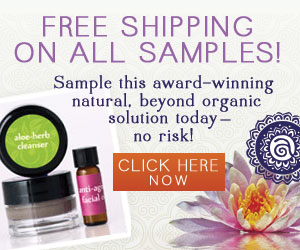There has been a lot of chatter on the interwebs lately about using coconut oil (and other oils) for sunscreens – amazing that plants actually have natural sun protection in them, isn’t it? However, there are a few things you should know before you slather on coconut oil and pop out into the sun. Not all oils’ Sun Protection Factor (SPF) are created equal, and not all are strong enough for everyone.
For those choosing coconut oil to be their sun protection of choice, I would heed warning that the SPF factor ranges from 2 – 8 SFP (depending on the quality of oil). For dark skinned beauties, this might not be a big issue, but I would still be wary for anti-aging purposes. As a fair skinned gal, I would burn in under 20 minutes with SPF 2. I am particularly conscious of the SPF I’m wearing (especially on my face, which is always exposed to daylight). If we break it down, you will quickly see that not everyone can use this as an alternative for sunscreen; however, I have some more options for you below.
The Best Natural Oils for Sunscreen
If you’re looking to wear plan oil as your sunscreen of choice, I have some options below, in order of their sun protection value (raspberry, despite having lower SPF than carrot seed comes first because it takes care of UVA & UVB rays). Please have a look at the cautions at the bottom of this page before rushing out the store to buy oils.
Red Raspberry Seed Oil – SPF 28 – 50
This one is one of the most popular oils for SPF and can have a range of 28 – 50 (depending on the oil’s quality). Red raspberry oil is actually close to equivalent of the protection you would receive from Titanium Dioxide, found in most mineral sunscreens. The essential fatty acids and host of antioxidants in this oil are also great for other skin healing purposes including eczema and psoriasis. Red Raspberry Seed Oil protects against UVA & UVB rays.
Carrot Seed Oil – SPF 38 – 40
Carrot oil, which doubles as an antispetic is said to contain a high SPF factor when diluted with a carrier oil. According to a study published in “Pharmacognosy Magazine” in 2009, products containing carrot seed oil have a natural SPF of between 38 and 40.
Wheatgerm Oil – SPF 20
Wheatgerm is packed with vitamins and minerals – namely Vitamin E, K & B – so it also acts as free radical preventer while it protects you from the sun.
Other Oils with SPF 10 or Less
There are a host of other oils with lesser SPF factors, but may be adequate for some more bronzed babes.
- Macadamia Oil – SPF 6
- Non-GMO Soybean Oil – SPF 10
- Avocado Oil – 4 – 10 (can get as high as 15)
- Olive Oil – 2-8
- Shea Butter – 3 – 6
- Almond Oil – SPF 5
- Sesame Seed Oil – SPF 4
- Hemp Seed Oil – SPF 6
- Jojoba Oil – SPF 4
- Coconut Oil – SPF 2 – 8
Use Caution When Using Natural Oils for Sunscreen
Since not all oils are created equal, the SPF can vary when it is on your skin. Determining the exact SPF factor of an oil is difficult, espeically given that natural oils oxidize (lose some of their medicinal properties) over time and when exposed to light. Ensure that you are purchasing your oils from a recommended source and always do your research.
Another note about UVA & UVB rays: Aside from Red Raspberry Seed Oil, most plant oils protect only against UVB rays. Use caution or mix with a non-nano sized zinc oxide formula (non-nano meaning it doesn’t absorb into your skin).
Non-Nano Zinc Oxide: Badger Balm Sunscreens
One of my favourite non-nano zinc oxide (non-nano meaning: does not soak into your blood stream) sunscreens is made by Badger Balm. If you follow me on Instagram, you have probably seen a few posts with Badger Balm sunscreens. I use this all over and find it to be effective, despite the fact my skin is whiter than almond milk (no cows were harmed in the writing of this post – ha!). Last summer I actually posted on Badger Balms sunscreen and am still using them today. They also make an awesome SPF lip protector.
I use Badger Balm’s Unscented SPF 30 ($16 USD), as well as their SPF 35 Sport ($16 USD), which is great when I’m getting in the water (or sweating it out). Given that the SPF is 30, this sunscreen may require a reapplication (or a few) throughout the day, especially after swimming. Also, it is worth noting that this type of sunscreen, because it doesn’t sink in can leave a whitish-hue on your skin. It doesn’t bother me much, but ensuring that you spread it on evenly and well should help minimize this.
For those who wish to have a lower SPF, the boyfriend uses Badger Balm Aloe Sunscreen in SPF 16 which also retails for $16 USD.
Hope you’ve found this useful, LPN’ers.
Protect your largest organ!
X
K
























